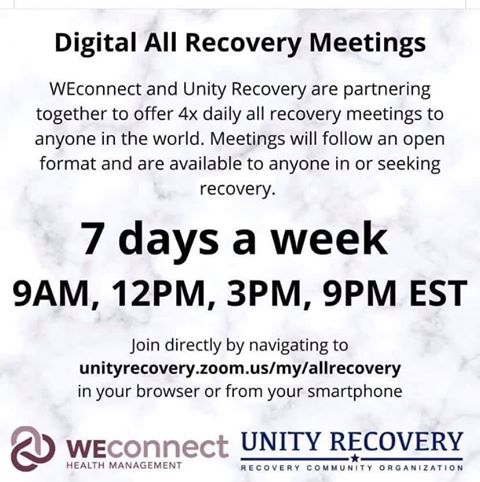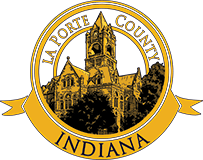Drug Court
“Nobody can go back and start a new beginning, but anyone can start today and make a new ending.”
The Team
Greta Stirling Friedman, Judge
La Porte County Superior Court 4
Corissa Strader, Coordinator/Case Manager
La Porte County Probation Department
Stephen T. Eyrick, Chief Probation Officer
La Porte County Probation Department
William J. Nelson Jr, Defense Attorney
Braje Nelson & Janes LLP
David K. Payne, Defense Attorney
Braje, Nelson & Janes, LLP
Barbra Stooksbury, Deputy Prosecutor
La Porte County Prosecutor’s Office
Deb LeRoy, Director
La Porte County Drug and Alcohol Program
Holly Grushka, La Porte County Community Corrections
Katie Jasnieski, Chief Executive Officer,
Swanson Center
Paula Dranger, Treatment Provider
Choices! Couseling Services
Adam Hannon, Detective
La Porte County Sheriff’s Department
Amanda Collins, Case Manager
La Porte County Probation Department
Ashley Ortega, Intensive Case Manager
La Porte County Probation Department
Angela Case, Bailiff
La Porte County Superior Court 4
EXTERNAL LINKS
La Porte County Problem Solving Court was established May of 2012 as an alternative to traditional case processing of substance dependent offenders. It is a voluntary program in which eligible offenders participate in an intense, multi-phase treatment program, submit to frequent drug testing and attend other appropriate court ordered programs while under the supervision of the Problem Solving Court Judge. Participants must attend services for a minimum of 18 months. Successful participants may have their charges dismissed or modified.
The La Porte County Problem Solving Court is in the process of obtaining a Non-profit organization status. This status will be beneficial to the program in funding for programming and incentives. The incentives motivate and encourage our participants and the programming supports growth in the recovery journey. These aspects enable the program to hold substance addicted offenders accountable, while reducing recidivism in La Porte County.
MISSION STATEMENT
“The La Porte County Problem Solving Court is dedicated to holding high risk, substance addicted offenders accountable and reducing recidivism by frequent judicial review, individualized treatment and intensive supervision.”
ALL RISE VIDEO
10 KEY COMPONENTS
Drug courts integrate alcohol and other drug treatment services with justice system case processing.
Using a non adversarial approach, prosecution and defense counsel promote public safety while protecting participants’ due process rights.
Eligible participants are identified early and promptly placed in the drug court program.
Drug courts provide access to a continuum of alcohol, drug, and their related treatment and rehabilitation services.
Abstinence is monitored by frequent alcohol and other random drug testing.
A coordinated strategy governs drug court responses to participants’ compliance
Ongoing judicial interaction with each drug court participant is essential
Monitoring and evaluation measure the achievement of program goals and gauge effectiveness.
Continuing interdisciplinary education promotes effective drug court planning, implementation, and operations.
Forging partnerships among drug courts, public agencies, and community-based organizations generates local support and enhances drug court program effectiveness.
THE PHASES
- Attend orientation and comply with conditions of the participation handbook
- Attend weekly progress hearings
- Attend three self-help meetings weekly
- Complete intake at treatment program
- Attend treatment as scheduled
- Meet with Case Manager as scheduled
- Obtain photo identification
- Apply for medical assistance (if required)
- Substance free for one month
- Attend weekly progress hearings and treatment
- Attend three self-help meetings weekly
- Meet with Case Manager as scheduled
- Schedule health physical
- Start searching for education/employment
- Present relapse prevention plan to the Court
- Substance free for three months
- Attendance at biweekly progress hearings and treatment
- Attend weekly appointments with Case Manager
- Attend five self-help meetings weekly
- Must obtain employement or be enrolled in school
- Complete weekly community projects
- Be current with all financial obligations
- Substance free for four months
- Attendance at biweekly progress hearings and treatment
- Attend four self-help meetings weekly
- Attend one meeting with Case Manager weekly
- Maintain employment and/or school
- Participate in community enrichment as directed
- Be current with all financial obligations
- Substance free for four months
- Attendance at monthly progress hearings and treatment
- Present updated relapse prevention plan to the Court
- Remain arrest and substance free
- Attend one meeting with Case Manager bi-weekly
- Maintain employment and/or school
- Prepare and present aftercare plan to the Court
- All financial obligations must be completed
- Attend three self-help meetings weekly
FREQUENTLY ASKED QUESTIONS

GALLERY
People never change because hey are under threat or under duress. Never. They change because they see something that makes their life seem valuable enought to start moving toward a life worth living.
- Robert Downey, Jr.





